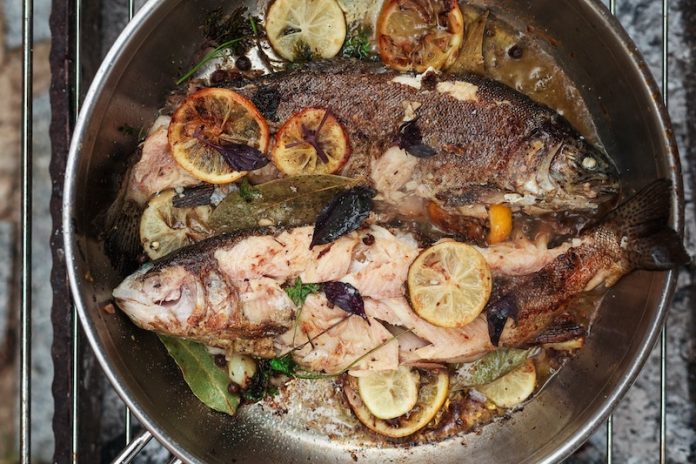
The liver is a vital organ that performs numerous essential functions in the body, from processing nutrients to detoxifying harmful substances.
Supporting liver health is crucial for overall well-being, and one way to do that is through a balanced diet.
In this review, we’ll explore the connection between your diet and liver health, highlighting foods that can help maintain this important organ’s optimal function.
Background: The liver is responsible for processing nutrients, metabolizing drugs, and removing toxins from the bloodstream.
When the liver is overwhelmed by excessive fat, toxins, or inflammation, it can lead to liver diseases like fatty liver disease, hepatitis, or cirrhosis. A healthy diet plays a significant role in preventing these conditions and supporting liver function.
Foods that Promote Liver Health:
Leafy Greens: Leafy green vegetables such as spinach, kale, and collard greens are rich in antioxidants, vitamins, and minerals. These nutrients help reduce inflammation and protect liver cells from damage.
Research published in the “Journal of Nutrition” suggests that leafy greens may help prevent fatty liver disease.
Berries: Berries like blueberries, strawberries, and raspberries are packed with antioxidants, particularly anthocyanins. These compounds help reduce oxidative stress in the liver and promote detoxification.
A study in the “Journal of Agricultural and Food Chemistry” showed that consuming berries improved liver enzyme levels in mice.
Fatty Fish: Fatty fish such as salmon, mackerel, and sardines are excellent sources of omega-3 fatty acids. Omega-3s reduce inflammation in the liver and support healthy liver function.
Research in the “European Journal of Clinical Nutrition” found that omega-3 supplementation improved liver fat content in patients with non-alcoholic fatty liver disease (NAFLD).
Research Evidence: Numerous studies have explored the effects of liver-friendly foods:
A study published in “Hepatology International” found that increased consumption of leafy greens was associated with a lower risk of liver fibrosis in patients with NAFLD.
Research in the “World Journal of Gastroenterology” demonstrated that regular intake of berries reduced liver inflammation markers and improved liver function in mice with alcoholic liver disease.
A systematic review in the “Journal of Clinical Medicine” concluded that omega-3 fatty acids can help reduce liver fat and improve liver enzyme levels in individuals with NAFLD.
Incorporating Liver-Supporting Foods: Adding liver-healthy foods to your diet can be both enjoyable and beneficial:
Balanced Diet: Aim for a balanced diet rich in leafy greens, colorful berries, fatty fish, whole grains, and lean proteins.
Limit Processed Foods: Reduce your intake of processed foods high in sugar, unhealthy fats, and additives, as they can burden the liver.
Stay Hydrated: Drinking enough water supports liver function by aiding in toxin elimination.
Avoid Excessive Alcohol: Limit alcohol consumption, as excessive drinking can harm the liver.
Conclusion:
A nutritious diet is a cornerstone of liver health. Foods like leafy greens, berries, and fatty fish are packed with essential nutrients that support liver function and protect against liver diseases.
While diet alone cannot prevent all liver-related issues, it plays a vital role in maintaining optimal liver health.
Incorporate liver-friendly foods into your meals, stay hydrated, and make healthy choices to support your liver in its crucial tasks of detoxification and nutrient processing. A well-nourished liver contributes to overall well-being and a healthier life.
Follow us on Twitter for more articles about this topic.
Copyright © 2023 Scientific Diet. All rights reserved.





